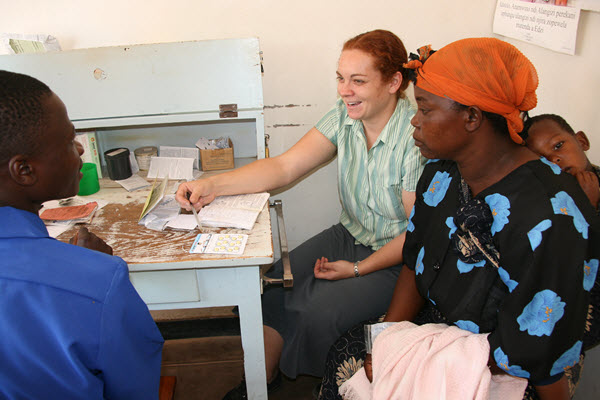The 300+ million people who call America home are a melting pot of ethnicities. The U.S. Census Bureau estimates that the number of Americans belonging to minority groups will continue to rise and by the year 2060 nearly 20 percent of Americans will be foreign-born. With such a diverse population to care for, it is important for healthcare workers to understand and overcome the unique challenges of providing care to people of all ethnicities, demographics, and lifestyles.
Here are 5 ways health professionals can increase their level of cultural competence to better help their patients.
Foster Curiosity
The first step in cultural competency is an exposure to cultures other than one’s own. Sheri Sawchuk, MSN, RN, of the Chamberlain College of Nursing leads two-week trips to communities in Haiti or Kenya. Such visits are an eye opener for nurses and doctors from the United States offering a new perspective on preconceived notions and beliefs.
Cultural immersion does not have to be on a grand scale, however. It can be achieved by fostering a curious attitude. Opportunities for cultural encounters exist within the workplace and community. Healthcare workers only have to make a little effort.
Educate Yourself

Communicating with people from vastly different cultures can seem daunting at first. Healthcare professionals can address this aspect of cultural competency by educating themselves about different minority groups. Books, movies, and cuisine are a great way to begin to understand another culture.
Learning about a new culture is not only interesting but can also provide insight about gender relations, religious beliefs, and dietary restrictions in a community, all of which have a bearing on health issues. Understanding patients from different ethnicities helps provide better care for them, but it’s important not to fall prey to generalizations and remember that every individual is different.
Read Also: 40 Spanish Phrases Every Nurse Should Know
Practice Social Medicine
Incorporating any social and cultural factors that can influence a person’s health into healthcare not only produces better outcomes but also greater patient satisfaction. This includes taking into account behavior, food habits, economic issues, and religious restrictions.
Working alongside health professionals in developing countries is a great way to get a fuller understanding of the social and cultural aspects of medicine. Sawchuk explains that on trips to Haiti, nurses learn how not all medications are affordable for the patients there and how patient education takes on an even greater significance in these communities.
See Also: 10 Best Ways for Nurses to Educate Patients
Develop Understanding
Nurses and other health professionals care for people who are under extreme amounts of stress. In these situations, it is important to develop an understanding without jumping to conclusions. For example, someone who is having trouble understanding English could be a reasonably fluent speaker of the language but is struggling under duress.
To ensure instructions have been understood, ask patients to repeat the information they have received. Try explaining things in simpler language or enlist the help of co-workers who speak the patient’s native language. Sometimes it can be helpful to talk to the patient without the family present.
Form Connections

Gaining a patient’s trust and developing a rapport is as important for healthcare professionals as their education and training. Forming a connection with a patient from another culture can be challenging, especially if there is a language barrier, but it can be achieved. If an interpreter is present, look at the patient and not the interpreter when speaking.
It’s also important to pick up social cues and adhere to them. In some cultures, it may not be appropriate for a male healthcare professional to touch a female patient’s knee, for example. In other cultures, gestures and a touch on the shoulder could do the trick in forming a connection with the patient. The traditional ways of forming connections – listening, asking, and following through – just have to be tweaked to be culturally sensitive.
See Also: Travel Nurse Jobs – Everything You Want To Know
![]()
About the Author:
Ariel Jacoby is an experienced healthcare writer who is most passionate about gender inequality in the field of medicine. She lives and works in Orange County, and she received her degree from Tulane University of New Orleans.



















